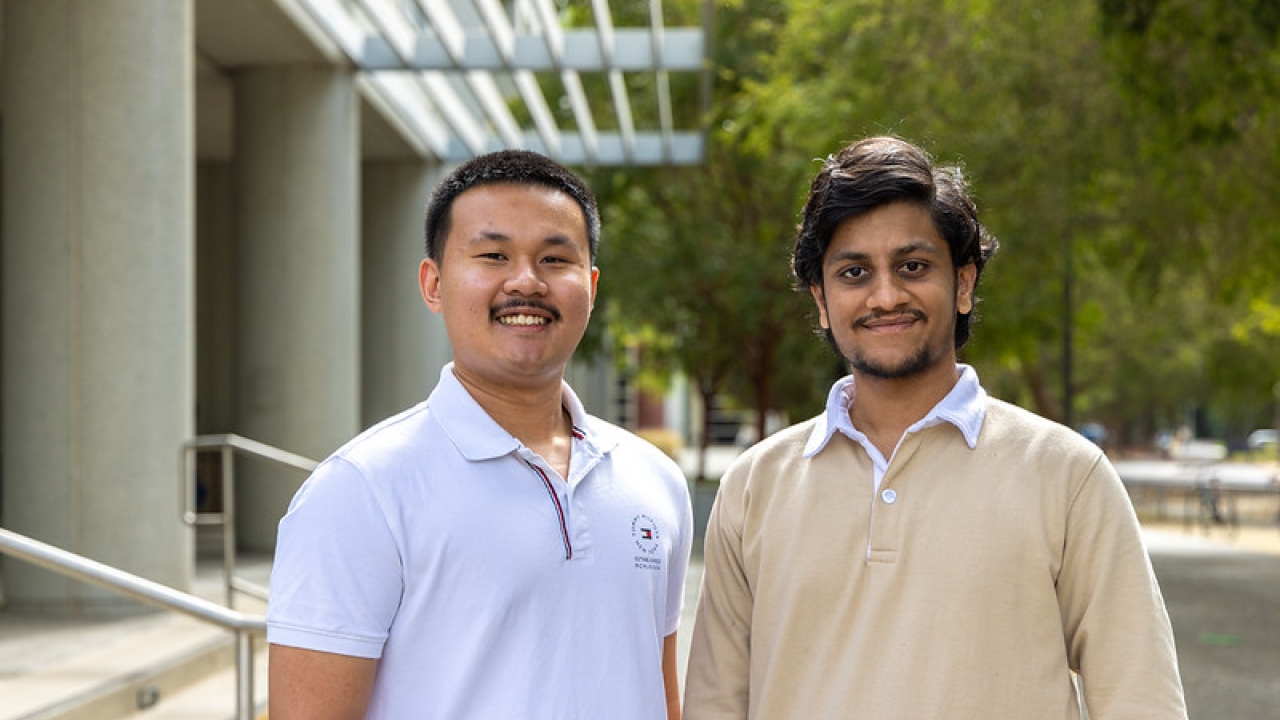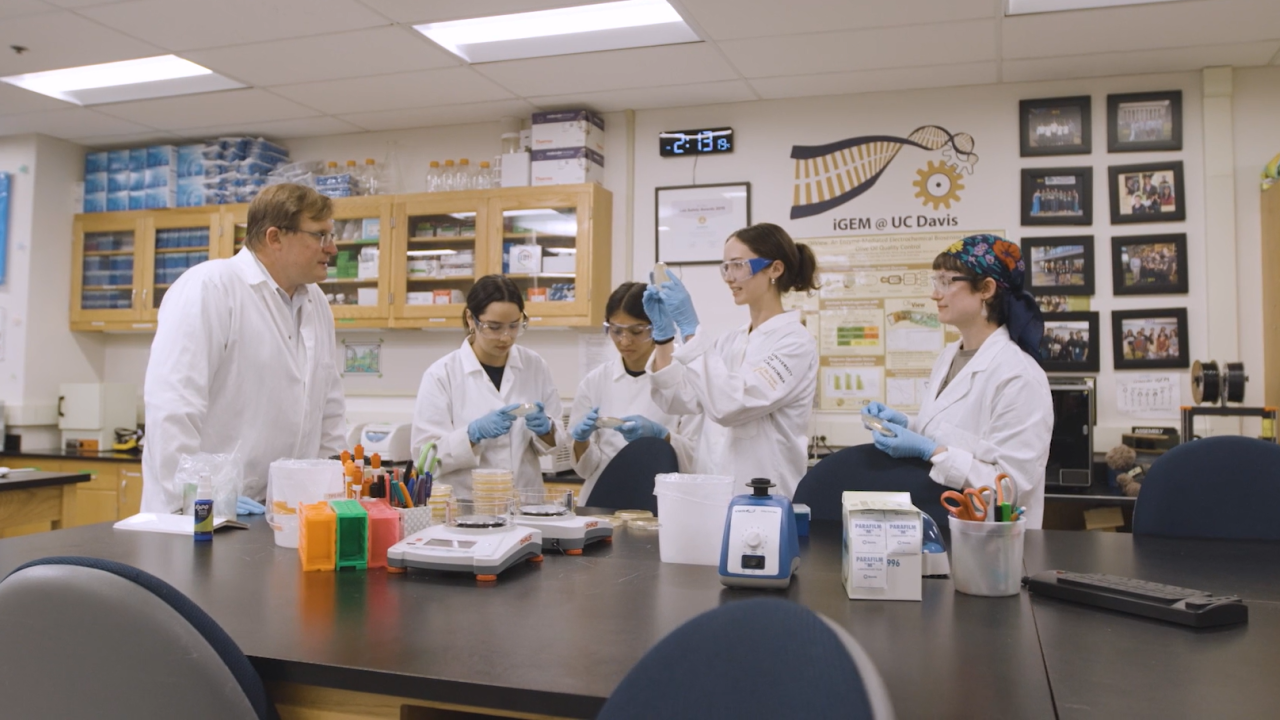
Rawan Dirhalleh Measures Mental Health in Engineering Undergraduates
Rawan Dirhalleh, a fourth-year computer science major at the University of California, Davis, has experienced mental health struggles and the ups and downs of seeking help. As an engineering student, she also recognizes the unique experiences of engineering majors that may contribute to stress and mental health issues.
So, when she had the chance to embark on a research project surveying UC Davis engineering students and their relationships to mental health, Dirhalleh’s personal experiences, coupled with a deep desire to use her skills to help others and understand the pressures engineering students face, made the decision easy.
“With my own mental health struggles and beginning to pursue various mental health resources like therapy, I’ve seen the effects on myself, and I’ve realized how important mental health is,” she said. “Understanding why people are struggling and being able to provide recommendations and potential systemic changes to help better the lives of engineering students felt like my calling.”
On April 23, Dirhalleh will issue a survey at UC Davis to undergraduate engineering students with questions about their experiences, identities, stress and mental health state.
Survey Says
Dirhalleh is working with Karin Jensen, an assistant professor of biomedical engineering at the University of Michigan, to conduct this research, using a survey created by Jensen’s Thrive Lab Engineering Experience research team and tailoring it for UC Davis students.
Some of the questions will be general questions from the original survey about mental health covering topics such as academic workloads and extracurricular commitments impacting mental health. Other questions will be tailored to the UC Davis experience, like “How does the fast-paced quarter system impact your stress?”

Once Dirhalleh has collected the data, she will analyze it using the R programming language and create visual representations like graphs and charts. She aims to have all the data collected and analyzed by the end of the academic year and, with it, gain a deeper understanding of the factors and key trends that influence the mental health and well-being of engineering undergraduates at UC Davis.
This deeper understanding could lead to targeted initiatives that better support students and contribute to a national conversation about mental health in STEM education. UC Davis already provides resources like Aggie Mental Health and the Aggie Compass Basic Needs Center, but perhaps the data could reveal a need for different resources, for example, training for faculty and TAs to better support students who may not know how to ask for help.
“We want this data to drive meaningful change,” said Dirhalleh. “Ultimately, our data will provide actionable solutions to make engineering education more supportive and resilient.”
Driving Change Through Data
The research at UC Davis is part of a long-term effort by Jensen and her Thrive Lab to build well-being into engineering culture. Jensen’s lab has conducted similar surveys at several other universities since she began studying stress in engineering students in 2018.
The collected data has been used to facilitate conversations with other institutions about the importance of mental health; the lab also seeks to serve as a resource, conducting informational workshops for faculty and students and hosting monthly virtual community meetings to promote mental health and wellness.

Jensen and her team have also recently been awarded a grant by the National Science Foundation to develop a novel course and related curricular resources focused on wellness in engineering, including lessons, workbooks and workshops. The resources will support instructors who may struggle with implementing wellness into their curricula and students, particularly first-years, by providing them with research-based tools and strategies to thrive in their academic environments.
The Changing Mental Health Landscape
Dirhalleh was connected to this project through Subhash Risbud, Distinguished Professor emeritus in the UC Davis Department of Materials Science and Engineering, who saw Jensen speak on her research at UC Davis last January and immediately wanted her to bring her research to the school.

Risbud says he had no idea that the subject was so nuanced and widespread, and he wanted to know more about whether engineering students are seeking mental health resources. He recalls his time as the director of the UC Davis Career Center, where he was sending students out into the world to potentially stressful jobs.
“This research brought me back to a time when I saw people who were troubled a lot and didn’t know there was a broader picture,” he said. “I saw people who needed help and didn’t know where to get it. Is it different now? Are people accessing the help they need?”
Dirhalleh hopes that her research will aid in making programs like Aggie Mental Health and Aggie Compass even more intuitive, robust and accessible. Jensen describes Dirhalleh’s approach as thorough and thoughtful, bringing many great ideas to the research.
“If I can come up with ideas or solutions or help others do the same just by collecting and analyzing this data,” said Dirhalleh, “that would be incredible.”
The survey will be released on April 23 and will be open to students through May 12. Take the survey here.





